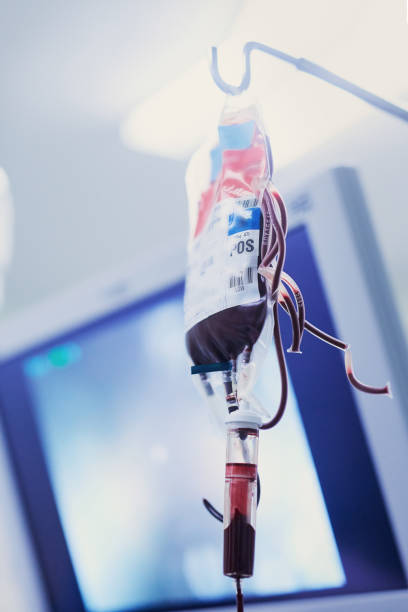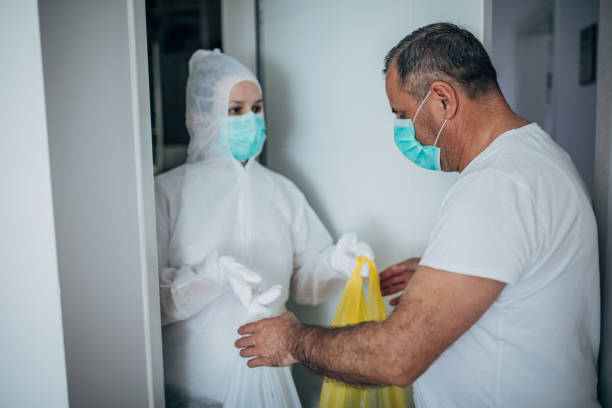Understanding Egg Donation
Egg donation is a generous act that can help individuals or couples struggling with infertility. It involves a woman donating her eggs to be used in assisted reproductive technology (ART) procedures, such as in vitro fertilization (IVF). The process is both medically and emotionally demanding, and it's crucial for potential donors to understand the requirements, implications, and the rigorous selection process involved.
Age and Health Requirements
One of the primary criteria for egg donation is age. Most fertility clinics and egg donation programs require donors to be between 21 and 35 years old. This age range is chosen because women in this bracket typically have a higher quantity and quality of eggs, which increases the chances of a successful pregnancy. Moreover, younger donors are less likely to have age-related genetic abnormalities in their eggs.
In addition to age, donors must be in excellent health. This includes having a healthy body mass index (BMI), which generally ranges from 18 to 28. A healthy BMI ensures that the donor's body can handle the hormone treatments and the egg retrieval process. Potential donors must also have a regular menstrual cycle, indicating normal reproductive function.
Medical and Genetic Screening
Medical and genetic screening are critical components of the egg donation process. Donors undergo comprehensive medical examinations, including blood tests, pelvic exams, and ultrasounds, to ensure they are free from infectious diseases and reproductive health issues. These tests help identify any underlying conditions that could affect the donor's health or the viability of the eggs.
Genetic screening is equally important. Donors are tested for common genetic disorders that could be passed on to the offspring. This includes conditions such as cystic fibrosis, sickle cell anemia, and thalassemia. The goal is to minimize the risk of passing on genetic abnormalities to the recipient's child.
Psychological Evaluation
Egg donation is not just a physical process but also an emotional one. Therefore, psychological evaluation is a mandatory requirement. Donors must meet with a mental health professional to discuss their motivations for donating and to ensure they understand the emotional and psychological implications of the process. This evaluation helps determine if the donor is mentally and emotionally prepared for the journey ahead.
Lifestyle and Behavioral Criteria
Potential egg donors must lead a healthy lifestyle. This includes abstaining from smoking, excessive alcohol consumption, and illegal drug use. These substances can adversely affect egg quality and the donor's overall health. Additionally, donors should not have a history of sexually transmitted infections (STIs) or engage in high-risk sexual behaviors.
Donors are also expected to adhere to a healthy diet and maintain a regular exercise routine. A well-balanced diet rich in vitamins and minerals supports reproductive health, while regular exercise helps maintain a healthy BMI and overall well-being.
Commitment to the Process
Egg donation requires a significant time commitment. The entire process, from initial screening to egg retrieval, can take several weeks to a few months. Donors must attend multiple appointments for medical examinations, hormone injections, and monitoring of ovarian response. They must also be available for the actual egg retrieval procedure, which is typically done under sedation or anesthesia.
Donors need to be reliable and punctual, as missing appointments can disrupt the cycle and affect the success of the donation. It's essential for donors to understand that their commitment directly impacts the recipient's chances of conceiving.
Legal and Ethical Considerations
Before donating, potential donors must fully understand the legal and ethical aspects of egg donation. This includes knowing their rights and responsibilities, as well as the recipient's. Donors are required to sign legal contracts outlining these terms. These contracts cover issues such as anonymity, parental rights, and financial compensation.
Most programs ensure donor anonymity to protect the privacy of both the donor and the recipient. However, donors should be aware of the potential for future contact if laws change or if the recipient decides to pursue information about the donor.
Compensation and Expenses
Egg donors are typically compensated for their time, effort, and any associated expenses. The amount of compensation varies depending on the clinic or agency, but it usually ranges from a few thousand to several thousand dollars. This compensation is intended to cover the donor's travel expenses, time off work, and any other costs incurred during the donation process.
While compensation is a factor, it should not be the sole motivation for donating. The decision to become an egg donor should primarily be driven by the desire to help others achieve their dream of parenthood.
Risks and Side Effects
Like any medical procedure, egg donation carries risks and potential side effects. The most common side effects are related to the hormone injections used to stimulate the ovaries. These can include mood swings, bloating, and discomfort at the injection site. In rare cases, donors may develop ovarian hyperstimulation syndrome (OHSS), a condition where the ovaries become swollen and painful.
The egg retrieval procedure itself, although minimally invasive, carries risks such as infection, bleeding, and damage to surrounding organs. Donors should discuss these risks with their healthcare provider and fully understand them before proceeding.
Post-Donation Care
After the egg retrieval procedure, donors need to follow specific post-donation care instructions to ensure a smooth recovery. This includes taking prescribed medications, avoiding strenuous activities, and attending follow-up appointments. Most donors can resume their normal activities within a few days, but full recovery may take up to a week.
It's also important for donors to monitor their health and report any unusual symptoms to their healthcare provider. Emotional support and counseling may be offered to help donors process their experience and any feelings that arise post-donation.
The Impact of Egg Donation
Egg donation has a profound impact on the lives of recipients and their families. For many, it represents the last hope of having a biological child. The selfless act of donating eggs can bring immense joy and fulfillment to those struggling with infertility.
For donors, the experience can be equally rewarding. Knowing that they have contributed to creating a life and helping others achieve their dreams can bring a deep sense of satisfaction and purpose. However, it is essential for donors to fully understand the commitment and implications of the process before embarking on this journey.
Conclusion
Egg donation is a complex but profoundly rewarding process. It requires careful consideration, thorough screening, and a significant commitment from potential donors. By understanding the requirements and implications, donors can make informed decisions and contribute to the miracle of life in a meaningful way. The journey of egg donation, while demanding, offers the opportunity to make a lasting impact on the lives of those who dream of becoming parents.




